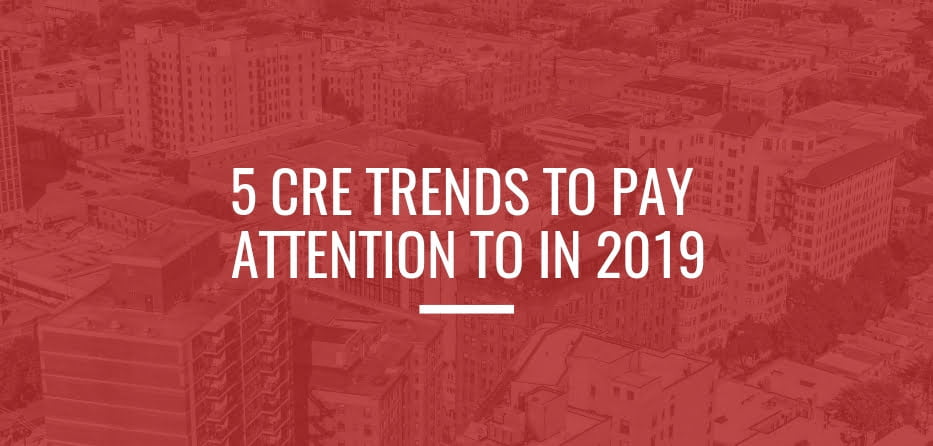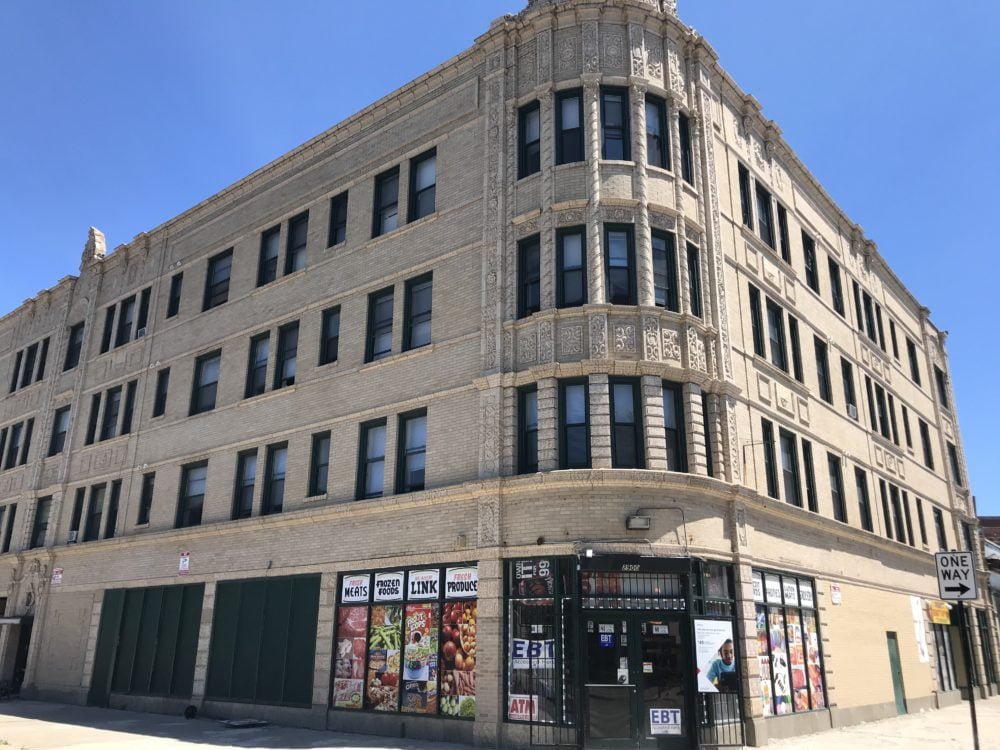02.13.19
Five Commercial Real Estate Trends I’m Paying Attention To In 2019

By Andy Friedman, Kiser Group
It already feels like 2018 is a distant memory as we enter the second month of the new year. Reflecting on last year, I thought I’d share some ideas on topics I find relevant and interesting and share why they are still on my radar for 2019.
Interest Rates
Probably the most important and impactful story of 2018 was the rise of interest rates- four hikes by the Federal Reserve took the Fed Funds rate from 1.5% to 2.5%. The ten-year treasury began the year at 2.46% and rose as high as 3.22% in October.
As multifamily cap rates remained relatively steady, cash-on-cash returns compressed. Going into that October high, everyone was convinced that interest rates had nowhere to go but up, typical of a market turning point. A year-end stock market sell-off combined with the Fed turning less hawkish led to a sharp reversal that took the ten-year treasury back down to 2.7%, temporarily easing the fear of rising rates.
As I speak with others in our industry, everyone considers it a given that rates will resume rising throughout the year and even the next few years. This has a major effect on underwriting by acquisitions professionals, particularly concerning future re-finance rates and exit cap rates. To be a contrarian thinker, I believe there is major risk to this thesis. If there is a recession in the near future (current expansion has gone un-interrupted since 2009), the Federal Reserve will, at a minimum, pause rate hikes and may even cut rates. On a much more macro level, I believe we may be permanently stuck in a low interest rate environment, for reasons that would take up another blog post entirely. I think the big surprise that people will look back on at the end of the year will be that rates did not follow the upward path that was sure to happen.
Uptown – a Chicago neighborhood
Last year was a turning point for Uptown to become one of Chicago’s most desirable neighborhoods, something that has been predicted for years but is finally coming to fruition. The announcement of the rehabilitation of the Uptown Theater after decades of false starts is the latest in a long line of large capital expenditures in the neighborhood. Old buildings have been rehabbed by Cedar St. into amenity-rich micro-unit buildings, new construction has risen, and the venerable Double Door has decided to call Uptown home after leaving its former location in Wicker Park. I expect the Uptown snowball to keep rolling in 2019.
Condominium Deconversions
2018 was the year that deconversion sales went mainstream. High pricing for apartment buildings combined with a glut of condominiums facilitated these transactions, as many of them resulted in large premiums for unit owners. Many of these deals, such as our recent $38 million closing of Flats on LaSalle, had investors that owned a large portion of units at the property. These investors used the deconversion process as an exit strategy.
As deconversions gathered frequent press throughout the year, association boards have started to take the view that it is in their association’s best interest to learn if a deconversion would be of benefit to the building as part of their fiduciary duty. Going forward, I expect to see fewer high-profile, large dollar amount deals as the premium in the apartment/condominium equation shrinks. I think 2019 will be the year of deferred-maintenance driven and smaller building deconversions.
Real Estate Crowdfunding
The 2012 JOBS Act laid the groundwork for companies to be able to raise money from both accredited and non-accredited investors through public advertising. Companies such as Fundrise and Realty Mogul created platforms where people can invest small amounts in vetted deals. These platforms have grown tremendously, with 2018 serving as a true breakout year for many of them. My Facebook feed is constantly populated with offers ranging from development deals to stabilized equity offerings.
Chicago-based Origin Investments was a very early adopter of crowdfunding, bypassing the platforms and conducting offerings themselves, targeting accredited investors and larger check amounts. That strategy has paid off handsomely for them, as evidenced by their recent Opportunity Zone Fund that raised over $100 million in less than 24 hours. I am paying attention to crowdfunding because I believe it is still in its infancy.
Blockchain
2018 was the year that Bitcoin and other cryptocurrencies went poof, popping the biggest and quickest bubble I have ever seen. Whether these currencies will ever truly be worth anything remains to be seen, but there is promise for the underlying blockchain/ distributed ledger technology.
The first and most obvious application is for proof of title, in essence, a record of chain of ownership that is still stuck in the Stone Age in terms of technology. A distributed ledger would enable nearly instantaneous and indisputable title records, with massive implications for the title insurance industry. The second most commonly mentioned application is for securitization, a process by which ownership in an asset is placed onto a blockchain, with interests in that asset represented by a token. The token would be tradable, similar to a stock. Real estate is the primary application for this, as the market size is massive, but I’ve seen start-ups looking to securitize everything from wine to sports cars. There is a long way to go for asset securitization to work, and on some level, I think it aims to solve some problems that don’t really need solving.
As 2019 continues to march on, I will continue to pay attention to these trends and post a mid-year update.
